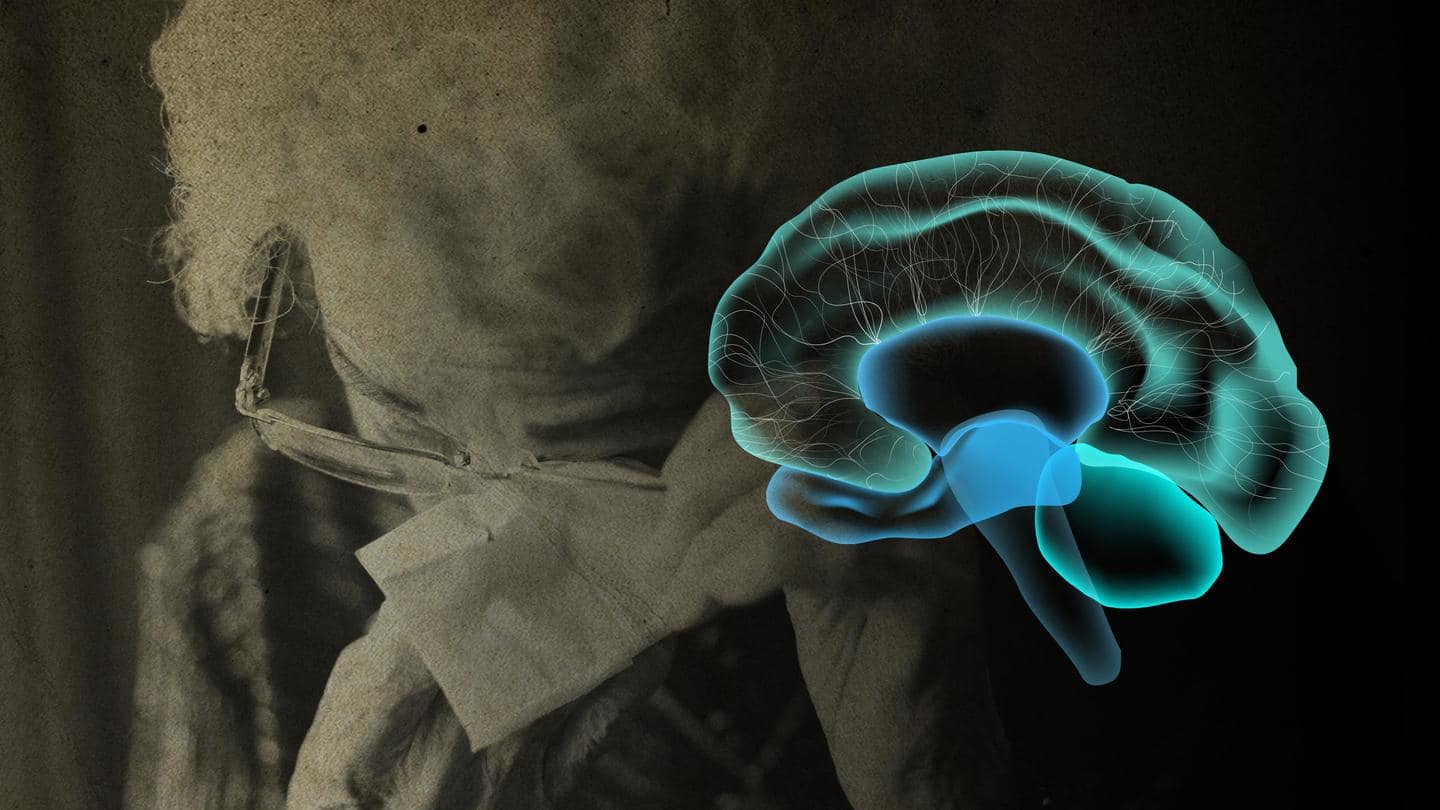
Know all about Alzheimer's disease: Symptoms, treatment, and care
What's the story
Alzheimer's is a progressive neurological disorder that causes brain cells to die, destroying your memory and other mental functions over time. The early signs of the disease include forgetting recent conversations and events. It is caused by the unusual build-up of proteins in and around the brain cells. One protein, tau, forms tangles within brain cells, and another, amyloid, forms plaques around the cells.
Context
Here is what our expert says
Alzheimer's disease is an age-related neurodegenerative disease where the ability to think, along with social and behavioral skills, declines. Classically, the onset of symptoms happens in mid-60s, but the early onset variant shows symptoms as early as the 30s. The motor functions are preserved but patients find it difficult to perform everyday tasks linked to memory and planning, making it difficult to live independently.
Symptoms
How to recognize symptoms of Alzheimer's
In the early stages of the disease, a common symptom in patients is forgetting recently learned information. Slowly, they start forgetting important events and dates or ask the same questions repeatedly. It can also cause poor judgment, loss of spontaneity, and longer time to complete daily tasks. It often leads patients to wander and get lost. Mood changes and anxiety are also common.
Information
Diagnosis for the disease
A lot of tests might be performed by doctors to diagnose the condition. Cognitive and memory tests are conducted to understand the person's ability to think and remember. Neurological function tests, blood/urine tests, a brain CT scan, and genetic testing are also conducted.
Different stages
Know the 5 As of Alzheimer's
The 5 As of Alzheimer's refers to the different stages of the disease. Agnosia: Inability to recognize familiar tastes, sounds, and objects. Anomia: Inability to remember names. Aphasia: Failure to communicate through speech and problems in speaking, or understanding sign or written language. Apraxia: Disabled in performing regular tasks like dressing, cooking, etc. Amnesia: Loss of memory including facts, experiences, and information.
Risk factors
Factors that might raise the risk of developing Alzheimer's
With age, your risk of getting Alzheimer's increases. The disease mainly affects people above 65. People who have a family history of Alzheimer's are more likely to get it. High blood pressure, high cholesterol levels, and obesity can also raise your risk. Excessive smoking can also lead to Alzheimer's as the toxins in cigarette smoke cause stress and inflammation of cells.
Treatment
Treatment for Alzheimer's
Alzheimer's is a complex disease and therefore there is currently no cure for the illness. However, certain medical treatments, improved quality of life, and mental support to patients can help to alleviate the symptoms. For mild and moderate Alzheimer's symptoms, drugs like Galantamine, Donepezil, and Rivastigmine are usually prescribed by doctors. A medication called Memantine is prescribed to treat moderate to severe Alzheimer's disease.
Care
How to care for an Alzheimer's patient?
Simple tasks might become difficult for Alzheimer's patients once the disease progresses. This can make them frustrated and agitated. So, establish a daily routine and schedule the regular tasks wisely, allowing the patient to take breaks in between tasks. Make communication easier by maintaining eye contact and smiling, and using relaxed body language. Boost their self-esteem and make them have a nutritious meal.